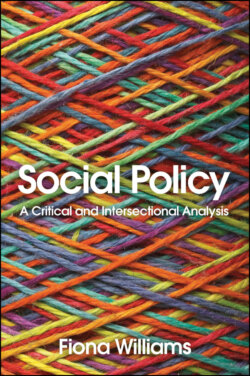Читать книгу Social Policy - Fiona Williams - Страница 18
3 Intersecting Global Crises and Dynamics of Family, Nation, Work and Nature: A Framework for Analysis Introduction
ОглавлениеThis chapter translates the discussion in chapter 2 on intersectionality and critical approaches to social policy into a framework for analysing contemporary neoliberal welfare states. It seeks to take account of and go beyond those accounts that locate the forces behind austerity welfare solely within the contradictions of capitalism and neoliberal ideologies. The aim is to provide a way of analysing a more complex picture of the social formations and relations of power and inequality constituted through social policies in the twenty-first century. There are two dimensions to this framing: the first encapsulates the contradictions of global financial, patriarchal, racial and ecological capitalism and their associated crises. These include not only the North Atlantic Financial Crisis of 2008 but also the related and intersecting current global crises of the environment and climate change, of care and social reproduction, and of the racializing of transnational borders. The chapter spells out the different ways in which each of these crises threatens human and planetary wellbeing and sustainability. Also significant are the impacts they have, singly and together, in reproducing existing gender, class, racial and geo-political inequalities in even more stark ways. The second dimension of framing elicits an understanding of how welfare states at national scale attempt to ‘settle’ the changes and challenges around the intersections of family, nation, work and nature. While these two dimensions of the framework are spatially different – the first at global scale, the second at national scale – these spaces are not separate but interconnected.1 For example, the racialization of transnational borders is a global phenomenon but operationalized by national and supranational laws and practices. The framework presents a (national) frame within a (global) frame (see figure 3.1, p. 54). This framing is relevant to developed welfare states; here my detailed points of reference are to the UK. Before explaining these two dimensions I summarize some of the main shifts in welfare settlements in recent history.
